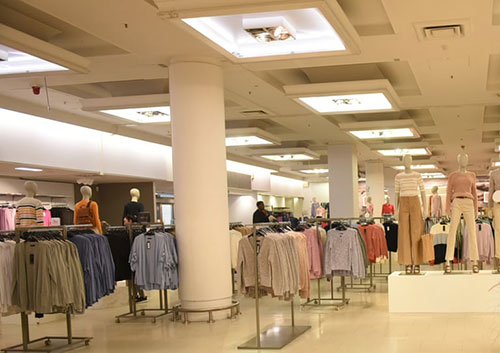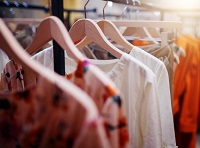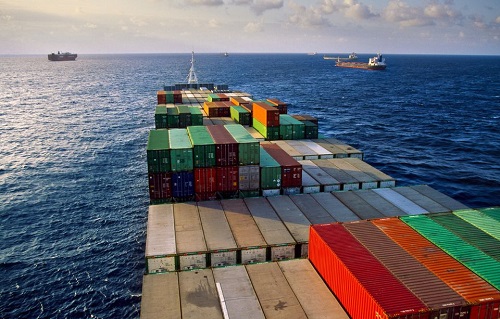FW
India has urged countries with which it has free trade agreements (FTAs) to allow import of goods now without certificate of origin as domestic authorities are currently not issuing the document on account of the ongoing lockdown. Exporters have to submit that certificate at the landing port of the importing country to claim duty concessions under FTAs.
The certificate helps in checking dumping of cheap and sub-standard goods from a third country. The request was notified in a trade notice by the Directorate General of Foreign Trade (DGFT).The certificates would be issued retrospectively by the concerned Indian agencies after they open their offices. Therefore, in the interim period, the customs authorities and other competent authorities in the trading partners with whom India has a trade agreement may kindly allow the eligible imports under preferences on a retrospective basis subject to the subsequent production of the certificates of origin by the Indian exporters.
The notice said, India would also honor its preferential trade agreement imports, subject to the respective governments also making a formal request or putting up a notice in this regard for accepting these certificates on retrospective basis. Under these trade agreements, two or more trading partners significantly reduce or eliminate import duties on maximum number of goods traded between them. India has implemented such agreements with the Association of Southeast Asian Nations (ASEAN), Singapore, South Korea, Japan, Sri Lanka, Thailand and Malaysia.
The National Council of Textile Organizations (NCTO has criticised administration’s plan to institute a 90-day deferral on MFN tariffs. NCTO believes the reported plan being pushed by importing and retailing industries would defer certain tariffs, including those on finished apparel products. It is an ill-advised policy that will hurt the US textile industry at a time it is answering the call of the nation to produce medical supplies to battle the COVID-19 pandemic.
NCTO has been at the forefront of efforts to deploy resources, converting production lines to manufacture urgently needed medical supplies like face masks and their textile components, to address the critical need for personal protective equipment and other medical and sanitation supplies in the fight against the coronavirus. These unnecessary tariff concessions would benefit importers and retailers at the direct expense of manufacturers on the front lines of the COVID-19 response and send a demoralizing message.
Tariff deferrals would severely exacerbate ramifications for the US economy, manufacturers and workers and open the floodgates for imports. If the US government makes tariff concessions during this crisis, it will be inviting a virtual tsunami of imports further devastating domestic manufacturing as it attempts to regain its footing.
 As both retailers and consumers are grappling with the effects of COVID-19, rental platforms like Rent the Runway and RealReal are also facing a shortage of orders. Demand for rented work wear and occasion wear is drying up as conferences, weddings and other events are being canceled across the board. This can be noted from the example of Nova Octo, an evening wear rental service, whose new rentals dipped by more than 90 percent last week. The supplies of resellers like The RealReal and Vestiaire Collective, are also affected as stores remain closed. This is likely to delay future consignment processing times of these sellers by up to four weeks.
As both retailers and consumers are grappling with the effects of COVID-19, rental platforms like Rent the Runway and RealReal are also facing a shortage of orders. Demand for rented work wear and occasion wear is drying up as conferences, weddings and other events are being canceled across the board. This can be noted from the example of Nova Octo, an evening wear rental service, whose new rentals dipped by more than 90 percent last week. The supplies of resellers like The RealReal and Vestiaire Collective, are also affected as stores remain closed. This is likely to delay future consignment processing times of these sellers by up to four weeks.
Similarly, Vestiaire Collective is facing an inventory build up as many customers are depositing their old clothes in these stores. The Paris-based company closed its New York warehouse over the weekend as per Governor Andrew Cuomo's executive order for all non-essential workers to stay home. However, the company is seeing an increased visitor turnout on its shopping app.
As per managing director of of GlobalData Retail, Neil Saunders, during these times, shoppers that use rental and resale services, may have less disposable income hence, they are likely to cut non-essential purchases out of their spending habits.
Though New York City-based rental service, Rent the Runway, is yet to see members pause and cancel the service en masse. However, some of its competitors like the Seattle-based Armoire have been recording a significant number of cancellations since the last two weeks.
Despite such instances, online shopping may increase due to the growing work-from-home culture. As retail customer service platform Hero reveals, in the second week of March, e-commerce purchases made between the hours of 9am and 6pm jumped 52 percent compared to the same period last year. Rental users, in fact, are embracing dressing up at home rather than for the office.
 As the dark clouds of Covid 19 continue to hang over global economy, the situation in global apparel sourcing and trade is worsening. From lack of raw materials, the industry is rapidly shifting to orders being cancelled. With stores across the EU, US, Asia being shut, retailers are being forced to either postpone or cancel their sourcing orders.
As the dark clouds of Covid 19 continue to hang over global economy, the situation in global apparel sourcing and trade is worsening. From lack of raw materials, the industry is rapidly shifting to orders being cancelled. With stores across the EU, US, Asia being shut, retailers are being forced to either postpone or cancel their sourcing orders.
Trade volume to be hit
This situation is similar in three regions recently studied by Global Trade Analysis Project Recursive Dynamic (GTAP-RD) Model. Economies of these regions, namely, China, USA, and EU are likely to be hit harder than the rest of the world.
Firstly, the volume of world apparel trade in all these three regions is likely to be hit hard by Covid-19. Especially, demand for apparels in the EU and US is expected to drop sharply as clothing stores are forced to shut down and consumers are losing jobs and struggling financially.
China to be the worst sufferer
Secondly, the sharp decline in imports by EU and US will hit China hardest as the country will record a significant drop in apparel exports. One of the most important reasons for this is the large volume of its exports. As China is the largest source of US and EU apparel imports, it is often used to fulfill large-volume sourcing orders. However, many retailers are likely to cancel these large-quantity orders, which will result in a disproportional loss of China’s apparel exports. Secondly, China exports all major categories of apparels to the US and EU. This makes it the most vulnerable to order cancellation.
important reasons for this is the large volume of its exports. As China is the largest source of US and EU apparel imports, it is often used to fulfill large-volume sourcing orders. However, many retailers are likely to cancel these large-quantity orders, which will result in a disproportional loss of China’s apparel exports. Secondly, China exports all major categories of apparels to the US and EU. This makes it the most vulnerable to order cancellation.
Almost 60 per cent of Bangladesh orders cancelled
Besides China, apparel exports from Bangladesh will also be hit. The country is a leading apparel supplier to both the EU and US markets. This makes it more exposed to order cancellations. As the country is a beneficiary of the EU Everything But Arms (EBA) program, around 60 per cent of its apparels are exported to EU. In comparison, Vietnam has a more diversified export market, its apparel factories have more flexibility to mitigate the impact of a fall in import demand from the EU and the US.
Job losses to mount
Thirdly, the declining apparels imports by US and EU have a notable impact on employment in many apparel exporting countries. Even a 10 per cent decline in imports by these countries can result in a decline of a 4 to 9 per cent decline in garment employment. Therefore, if imports by these nations decline by 10 per cent in 2020, leading apparel exporting countries such as Bangladesh, Vietnam, Cambodia and India may lose around 4 to 9 per cent of their jobs in the garment sector. The apparel sector is the largest job creator for the local economy in developing countries such as Bangladesh and Cambodia. Therefore, the social and economic impact of job losses in the apparel sector in these countries is very concerning.
Lastly, even if the spread of COVID-19 is controlled by the second part of the year, global apparel supply chain could continue to face turbulent times for the next one or two years. Even if apparel imports by the EU and US recover to its normal level in 2021, importers and garment factories may have to face difficulties such as acute labor shortage, increase in prices of raw material and a lack of production capacity.
Dilip Gyanchandani, Country Manager, India, Wool Mark Company
 From the textile and garment industry prospective there would be short- to mid- term business impact on volumes as due to the lockdown working factories have come down to minimum production levels. From September onwards, normalcy should be restored but it will take about three to four months for the industry to bounce back. Things are looking good now but it is an uncertain period and is difficult to say something at this stage because it looks like we are containing the pandemic.
From the textile and garment industry prospective there would be short- to mid- term business impact on volumes as due to the lockdown working factories have come down to minimum production levels. From September onwards, normalcy should be restored but it will take about three to four months for the industry to bounce back. Things are looking good now but it is an uncertain period and is difficult to say something at this stage because it looks like we are containing the pandemic.
We at Wool Mark in India are working from home. As usual, we are connected with partners and providing online and digital information. At this point, they have enough time to go through the digital courses to study fiber, our product and development and wool as and when they are free. We are also ensuring all our staff globally are safe at home and are inter connected to create a positive environment.
In the near short to midterm there would be an impact on business because there will be a disruption in global supply chain. Most countries are now fighting the pandemic. At the moment, I don’t see any difficult time zones for the next six weeks. I believe from the end of April to mid May things will start recovering if everything goes well. Our financial year starts from July, hopefully in the coming financial year, we should be able to do good and be able to come out of this crisis.
Two things emerge clearly for garment brand owners. Firstly, a slowdown is acceptable but a lockdown is something that has never happened and this has created a huge impact on the textile and garment. These are life’s learning. There will be more sustainable demand and business in future which will drive the goal but it would be in a balanced fashion.
Vietnam National Textile and Garment Group (Vinatex) has revealed that the country’s garment and textile industry may lose up to VND 11 trillion if export orders continue to be stopped, delayed and cancelled. This will further lead to job losses in April and May.
Larger the brand is, higher the reduction ratio and there is no sign of recovery, according to a report in a Vietnamese news portal. If there is no policy adjustment, many enterprises may lose liquidity by the end of April and the unemployment rate will be between 30 per cent and 50 per cent in April and May.
The estimated loss of the industry will be up to above VND 5 trillion if 30 per cent of workers are unemployed in April and 50 per cent of workers are unemployed in May. If the situation lasts longer, the industry will lose up to VND 3 trillion every month, it said.
The industry has also been importing around $1.5 billion worth of raw materials every month. If 20 per cent of orders are cancelled, $300 million worth of raw materials will not be used and that might become inventory difficult to circulate.
It is estimated that the total inventory in April and May this year of the industry will lose 50 per cent of the value, equivalent to around $300 million. Vinatex alone will lose about $24 million.
Vinatex estimated that if the Covid-19 pandemic ends by the end of May and the economy recovers from June, the garment and textile industry will suffer a loss of VND 11 trillion and the group will lose around VND 1 trillion.
The world’s largest zipper manufacturer YKK USA is partnering customers and government contractors to manufacture in-demand supplies for medical workers at all four of its main US manufacturing facilities in Alabama, Kentucky, Georgia and California.
Considered part of the Essential Critical Infrastructure Industry by the Department of Defense and the Department of Homeland Security, YKK is continuing to work despite calls for lockdowns. The company is abiding by strict safety protocols to ensure employee well-being.
Alabama-based Tape Craft Corporation, a YKK subsidiary, is working with Ford Motor Company to produce face shields. Last week, the company provided 85,000 elastic straps for the motor company, which will produce the masks in its Michigan facilities. Tape Craft also offered YKK’s hook and loop fasteners, plastic buckles and cord-stoppers as potential alternative materials.
In Kentucky, YKK Inc. Snap and Button Products is supplying snaps, machinery and expertise to its clients that have shifted their production to face shields. Beyond masks, YKK USA facilities in Georgia are providing products for the police, fire and medical support communities, as well as materials for mission-critical orders from the U.S. government. It’s supplying airtight, watertight and moisture-repellant zippers for isolation chambers and Level B Hazmat suits. The company’s facilities in California are providing these zippers for negative pressure tent prototypes that can be used for isolation, too.
YKK is also providing its apparel customers with fastening products for medical masks, hospital gowns, and medical beds and bedding, as a growing number of customers switch to protective gear production.
Pandemic issues are impacting the sweater segment in Bangladesh. As almost 80 per cent of man-made sweater yarns are imported mostly from China, lockdown in the country has slowed down the import process of raw materials into Bangladesh. Bangladesh sweater exporters are in a dilemma as from November till February is an offseason period for the sweater factories when exports fall below 50 per cent of its installed capacity. Peak seasons which start from March till October changes that trend completely as during this period our factories are running on 100 percent capacities with many factories engaging 2 or 3 shifts or even subcontracting from authorized and approved factories.
But just as exporters were approaching peak season with huge orders booked till June and July, then suddenly Coronavirus halted exports. It is predicted that at present situation sweater orders may be completely wiped and many sweater factories will be out of production for the entire peak season. The result of which will be a calamity collapse of hundreds of sweater factories in Bangladesh and tens of thousands of workers will lose their jobs.
As per Export Promotion Bureau (EPB) data, in the fiscal year 2018-19, Bangladesh earned $4.25 billion from sweater export, which is 15.82 per cent higher compared to $3.67 billion the FY18.
Sweater manufacturers and trade analysts have opined that technological upgradation has contributed a lot to increase the export earnings, while extended winter expedites the growth.
Taking a stand up to business as usual approach, renewable wood fiber producer the Lenzing Group outlined its commitment to sustainable practices in its recently released Sustainability Report for 2019. The company noted when it comes to climate change, business as usual scenarios have to be overcome; thus the company is committed to reducing greenhouse gas emission per ton of product by 59 per cent by 2030.
Lenzing also highlighted its focus on the circular economy. To address the issue of textile waste, the company developed its Refibra recycling technology, which enables garment production waste to be reprocessed into fibers. By recycling worn garments for the first time in the production of Tencel x Refibra fibers, Lenzing achieved a further milestone in 2019 in establishing this pioneering technology in the global market.
Lenzing’s vision is to turn the recycling of textile waste into a common standard process like paper recycling. This includes recycling fabrics and garments made of Lenzing materials. Transparency within the value chain was another issue highlighted in the report. Lenzing’s response has been a blockchain technology in cooperation with TextileGenesis that enables customers and consumers to trace the production of a garment to the raw material by scanning a barcode. In 2019, Lenzing presented its first pilot project during the Hong Kong Fashion Summit.
Additionally, Lenzing has identified seven core areas in which it has made direct contributions to the attainment of several sustainable development goals (SDGs) of the United Nations. These are: raw material security, decarbonization, water stewardship, sustainable innovations, partnering for systemic change, empowering people and enhancing community wellbeing.
The Federation of Indian Export Organisations (FIEO) has revealed that after sudden growth in February, exports are fast heading towards a lengthy period of contraction as buyers cancel major shipments in foreign-exchange (forex) earning sectors, fear exporters.
A string of order cancellations by major clients in the US and Europe — two major centres of the coronavirus outbreak — is expected to massively hit sectors like engineering goods and apparel. More than 40 per cent of India’s engineering exports land up in both markets, while Indian apparel is already under threat from cheaper Bangladeshi and Vietnamese alternatives in their primary export destination of Europe.
AEPC has demanded immediate relief in terms of faster clearance of banking and packing credit, late realisation of export bills, and raising of advance limit to 25 per cent without any collateral to ease working capital constraints. Also, the council has demanded cancellation of penalty on advance forex booking and deferment of equated monthly installments by six months to start with
Exports had caught a rare breather in February, rising after six months, leading to hopes of a recovery period beginning soon. However, policymakers are not convinced as yet.












